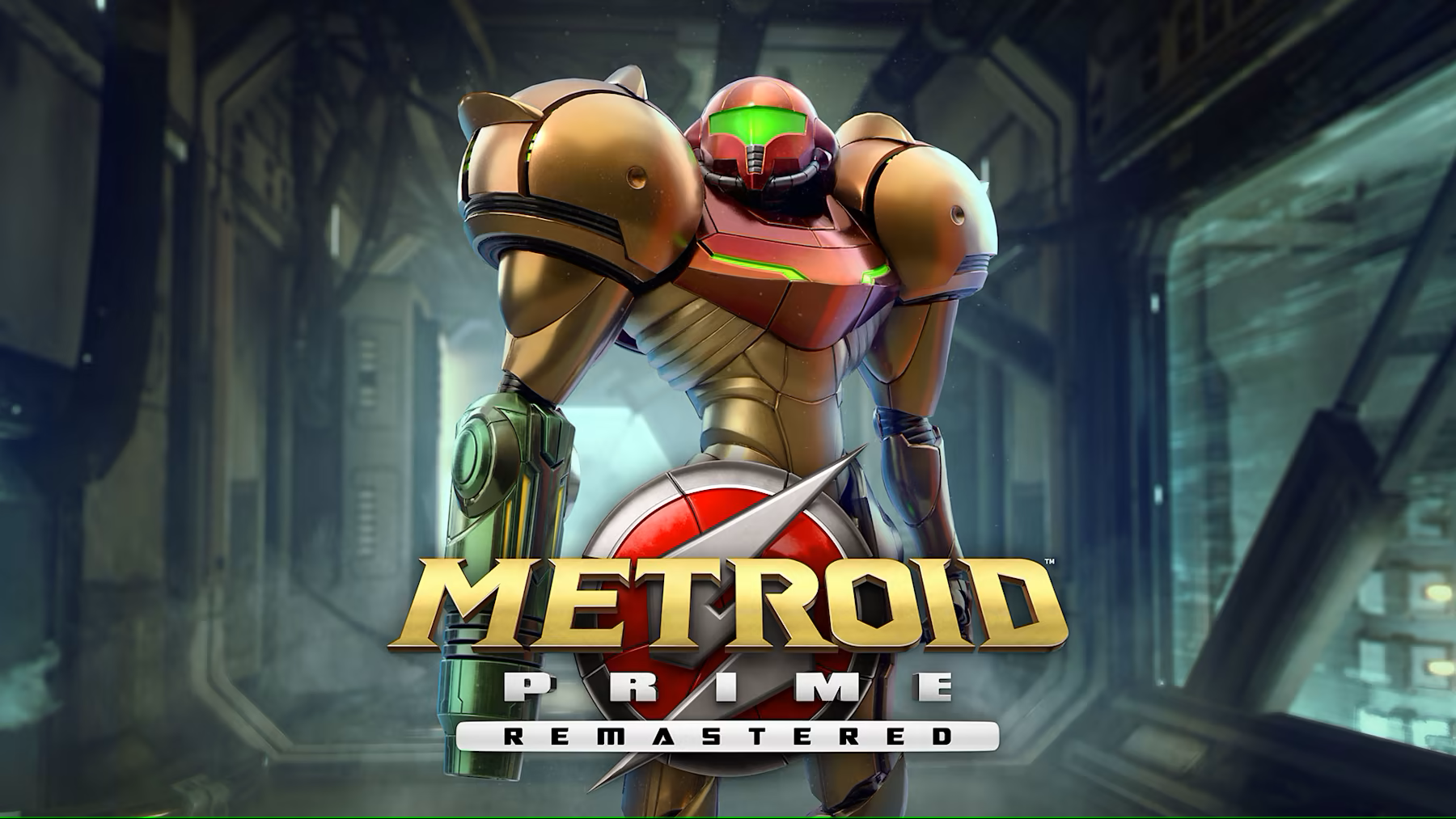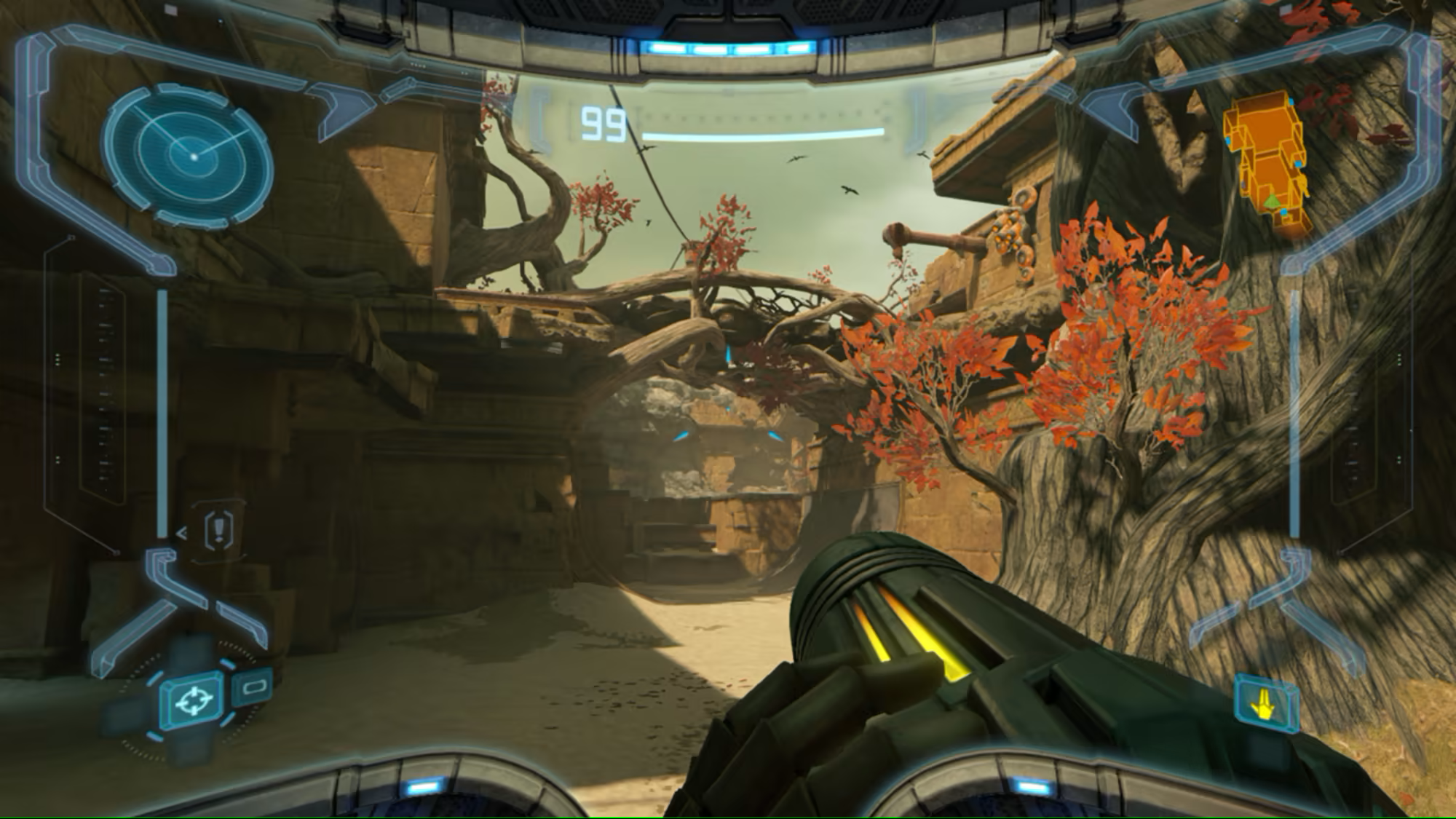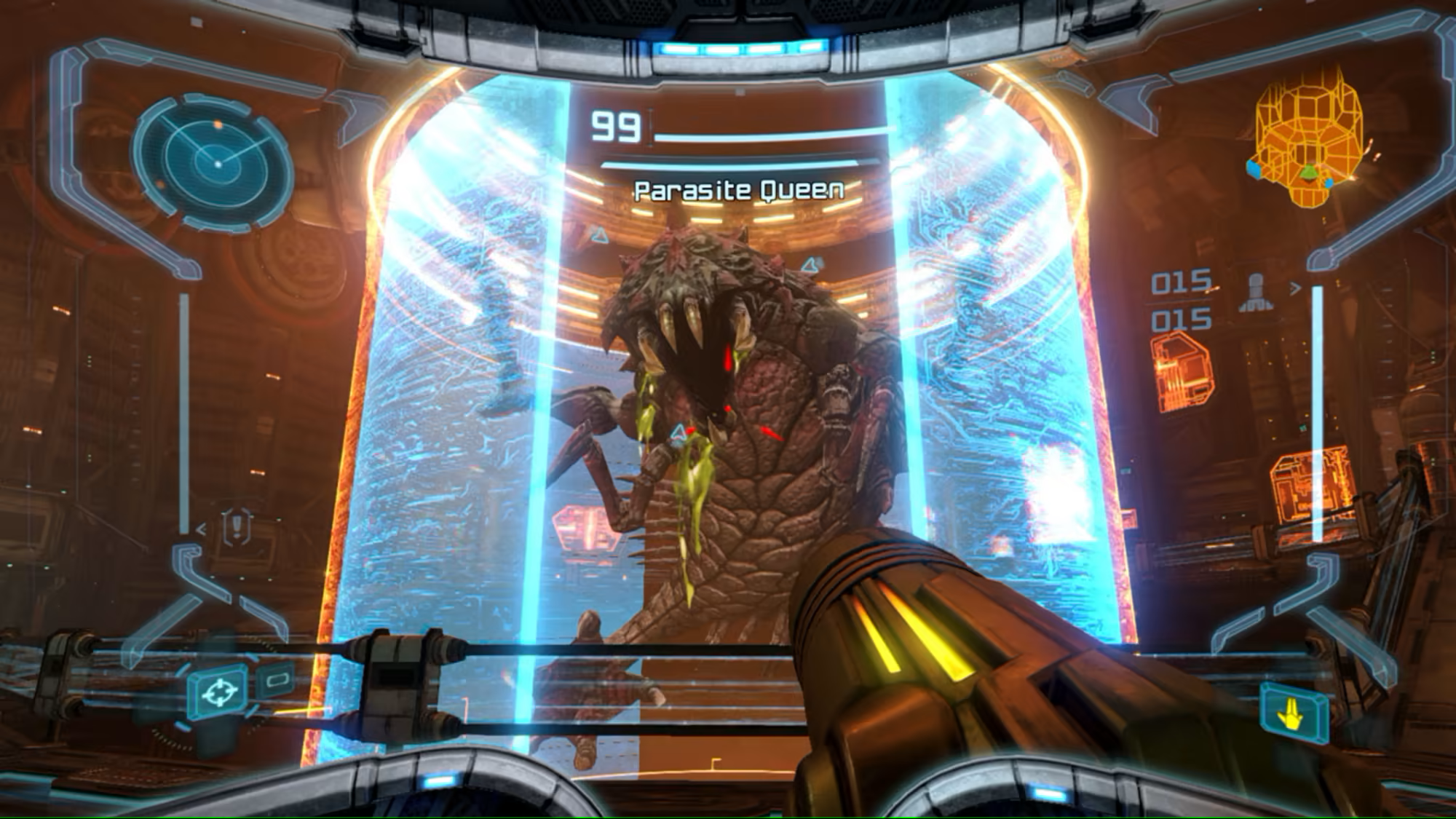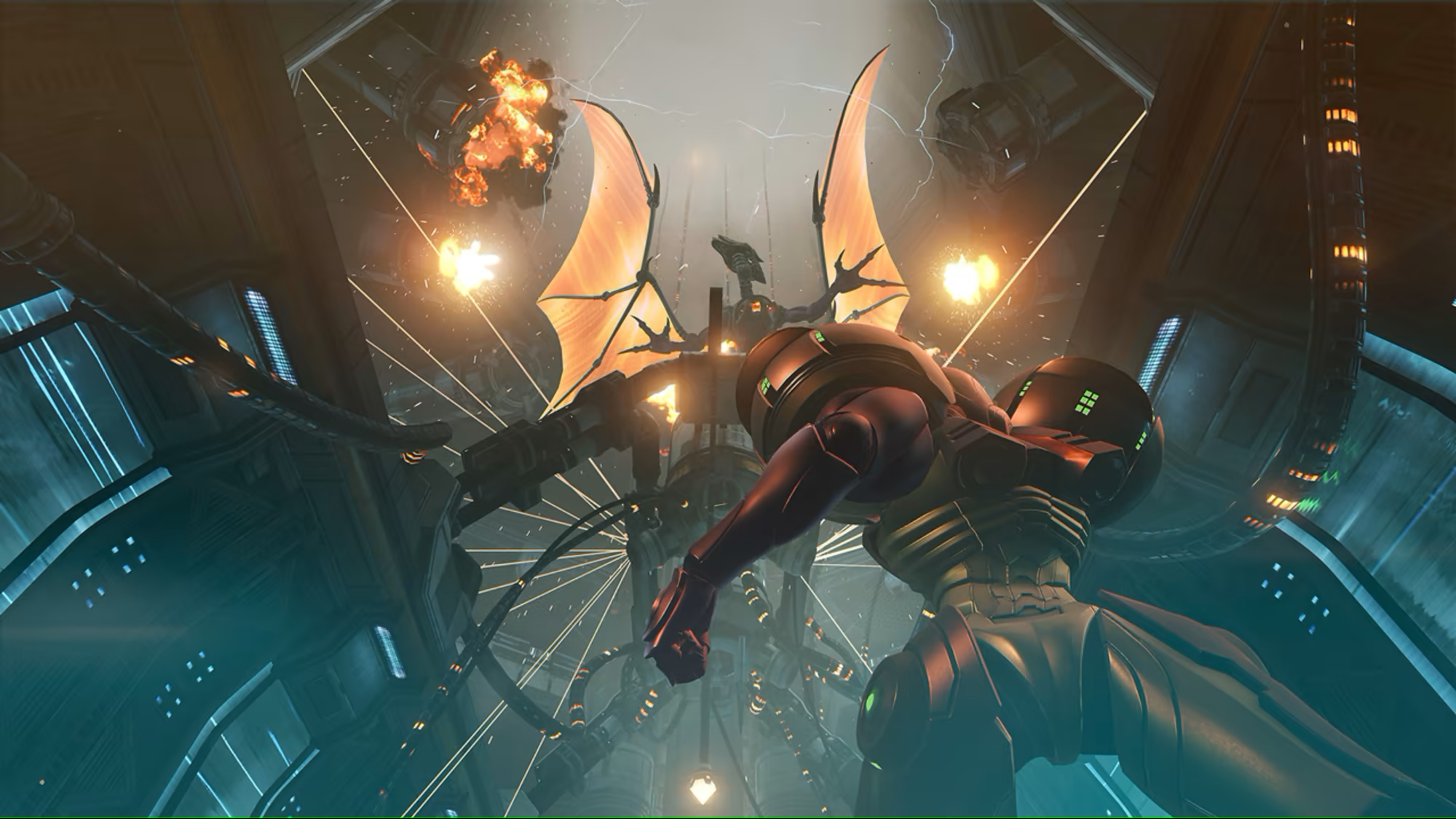It’s hard to believe Metroid Prime, Samus’ initial first-person outing, is over 20 years old. Even after playing Nintendo’s recent surprise drop on Switch, the game just doesn’t show its age like so many re-releases of older-gen games do.
Originally released on the GameCube in 2002, Metroid Prime was an amazing showcase of both Nintendo’s hardware and sheer developer love for this already legendary series. Metroid Prime Remastered is very much the same game it was all those years ago.
Metroid Prime has a lovely new coat of HD paint to the graphics, but it also manages to both feel perfect to our nostalgia of playing the original and feel perfectly at home on the Switch. A big part of the magic is how it adopts modern twin-stick FPS controls. This is the best Prime has ever played, and it makes the game feel new again.
This isn’t the first re-release of the series. Nintendo did that during the Wii-U era as well, when it released all three Metroid Prime games in one package. Unless you were really into motion controls, they were simply hampered by the old motion-focused nunchuck controllers of the Wii. Unfortunately, Nintendo only dropped the first Prime by itself this time around instead of a complete collection.
Thankfully, the port-up is superb. While you could argue the angular architecture of everything is still very old-school, Metroid Prime Remastered is still a gorgeous adventure. The HD overhaul is full of fantastically moody lighting and shadows. The organic themes of the overall world mixed with ancient technological ruins remains an enthralling place to explore.
Adding to the atmosphere is the incredibly good sound design. The score is fantastic, the ambient effects topnotch, and the use of familiar tunes and sounds all make the game feel absolutely Metroid while still having a unique flavor. That distinctiveness manages to make Prime feel not just different from other Metroid games but from most first-person shooters in general.
Even still, 20 years on, Metroid Prime feels surprisingly fresh. This is thanks in large part to the slower, more exploration-focused pacing. Samus can switch her visor between combat and scanning modes. This is an integral part of the gameplay, as the landscape is dotted with things to scan and interact with, and interacting with consoles and locks requires scanning them.
Samus can scan enemies to learn weaknesses, computer displays for logs and extra data, and even interactive parts of the landscape to find hints. Scanning leads to a lot of new text that broadens the backstory of the setting and also, in a very achievement-like way, unlocks extra content like art and music from the main menu.
That’s not to say Metroid Prime is just a slow roll through an alien world. There are intense running sequences and boss fights, and plenty of shooting action as well. Yet, the overall feel of the game is more thoughtful and perhaps even introspective than most shooters we’ve seen since.
Like traditional side-scrolling Metroid games, the design does have a certain focus on backtracking to previously unreachable areas once Samus has acquired new skills and powers. The 3D map is vital to keeping track of where you are, but the game doesn’t hold your hand as you explore. There’s no objective marker to tell you exactly where to go at all times.
Metroid Prime Remaster Review — The Bottom Line
Pros
- Looks and sounds great.
- Modern controls make it play better than ever.
- Fascinating world to explore.
- Great Metroid gameplay works great in first-person.
Cons
- Nintendo only re-mastered the first game (so far).
Metroid Prime Remastered is a welcome return of a classic that shows off just what a great game it was back then and now. It still looks and sounds great, plays better than ever, and remains a distinctive and memorable adventure.
[Note: Nintendo provided the copy of Metroid Prime Remastered used for this review. Featured image via Nintendo.]










Published: Feb 12, 2023 02:10 pm